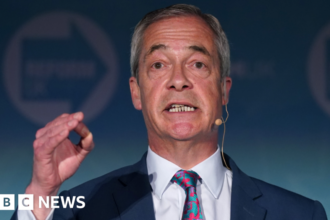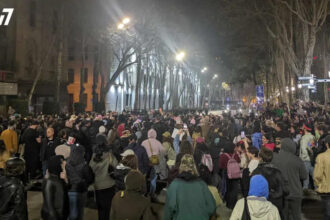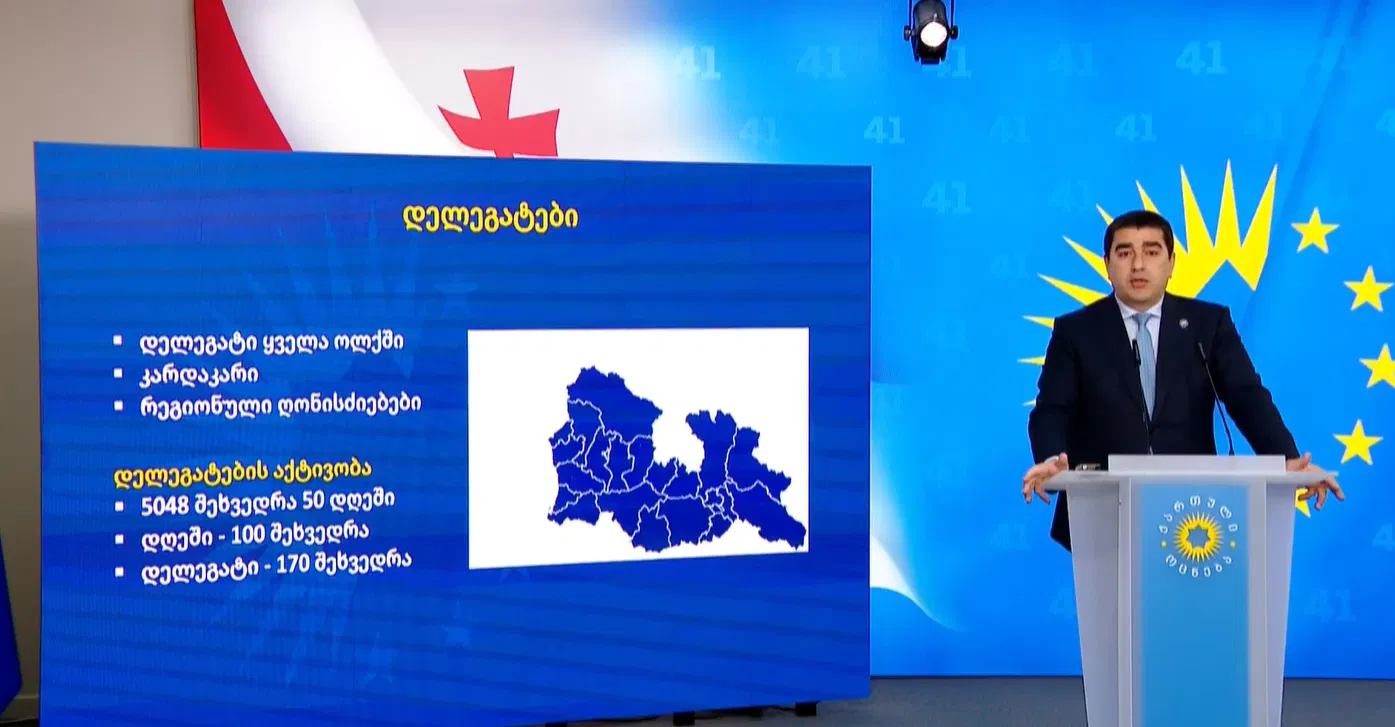Shalva Papuashvili, the Speaker of Parliament, railed at what he termed “disinformation” regarding alleged electoral fraud. The briefing was more notable for its lack of occupied territories such as Abkhazia or Tskhinvali than for the content.
While elections cannot be held on Georgia’s occupied territory, their omission on the official map during a briefing by a state official sparked public anger. Mamuka Mamdinaradze, the majority leader of the Parliament, dismissed the claims. He said that the occupied areas were shown in pale colors which the cameras failed to detect.
“The people without homeland began to post, one after another, trying overshadow what Shalva Papuashvili did to them with this Briefing,” Mdinaradze wrote. He added that the journalists who were present at the briefing received the presentation. They could see that the occupied areas were not omitted on the official map but were shown with almost white, very pale colours.
Briefing – Speaker rejects election-related “Disinformation”.
As for the content, Speaker Papuashvili slammed the claims made by local CSOs, opposition parties and the President in relation to the alleged electoral fraud. He rejected these allegations, including violations of the vote secrecy rule, the Georgian Dream voter mobilization efforts and suspicions about unusually high turnouts in certain regions.
First, he dismissed concerns raised by the Georgian Young Lawyers’ Association (one of the most prominent election observers), which filed complaints seeking to annul the results at all polling stations that used new technologies. The complaint was based on the fact the ballots were thin enough that they revealed which party a citizen had voted for.
Papuashvili cited the elections in Poland and Bulgaria, Lithuania and Moldova. He claimed that all of these elections did not use special paper to hide citizens’ choices, and had semi-transparent voting boxes. He claimed that the GYLA was using this issue to “take the elections away” from the Georgians. He also claimed that local observers organizations had “political goals” and lashed at their donors. “I have said this many times, that this is not the problem with a specific NGO. This is the problem with donors who allow such organizations to draw these fraudulent conclusions by such groups that are trying deprive the Georgians of the elections through direct disinformation,” said he.
Papuashvili also addressed the opposition’s allegations that the ruling party was using illegal means to mobilize its voters, collecting their data and using it to coerce them against their will. Papuashvili didn’t address the alleged illegal usage of citizens’ data, but he did say that parties should be in close contact with their supporters so that they can go to the polls. He discussed the NDI guidelines and IRI guidelines for how parties should communicate to their voters. He claimed that the GD did not violate any rules and had conducted a real campaign to mobilize supporters.
Third, Speaker raised concerns about the unusually large voter turnout in areas where the GD had won by large margins. In this context, Speaker praised the GD’s pre-election campaigns, spoke extensively about the “delegates” it had appointed for every region, and accused opposition of failing communicate with people in those regions.
“In reality, they are talking about a very simple scheme. The scheme is democracy and the support from the people. If you don’t have the support of the people, you won’t get good results. And secondly, regarding these elections, no one should lie to themselves or calm down.
Read More @ civil.ge




